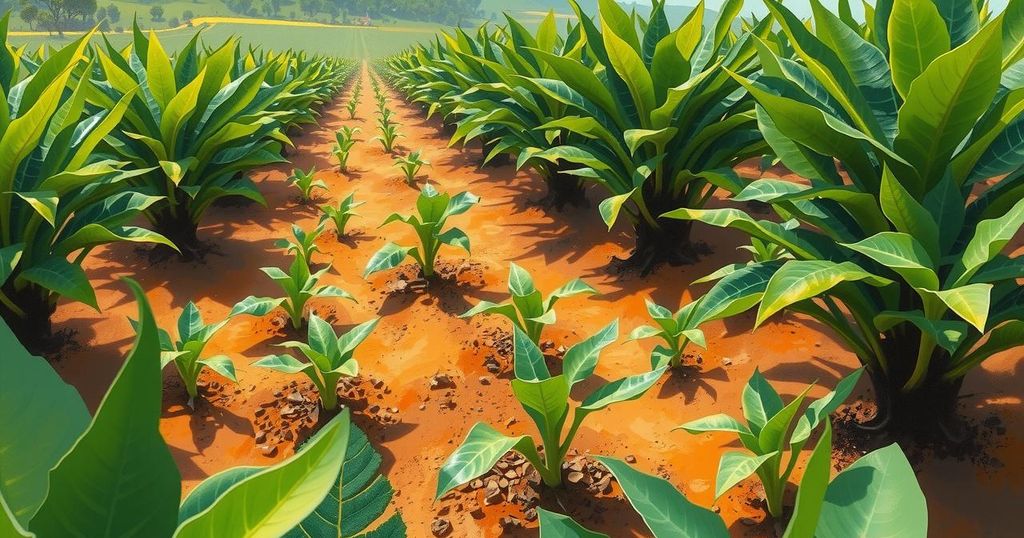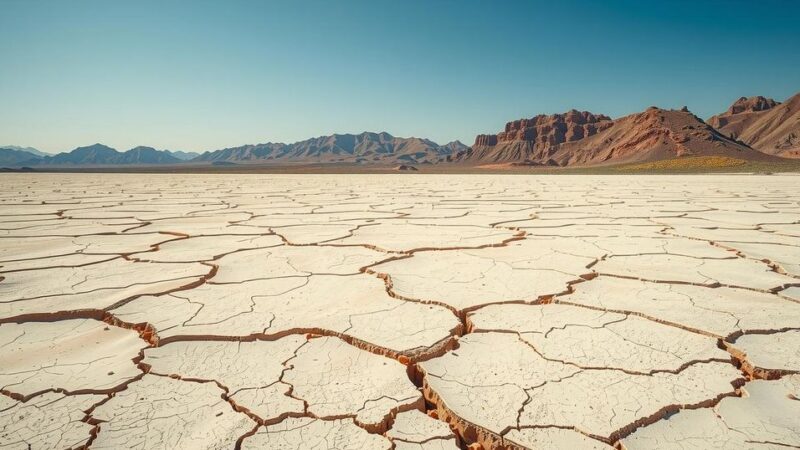Farmers in Madagascar’s vanilla-producing regions face severe impacts from climate change, with rising temperatures and altered rainfall threatening their livelihoods. Despite recognizing these challenges, only 20% are adapting their farming practices due to economic constraints. Recommendations include policy support to ease financial burdens and innovative agricultural techniques to enhance resilience. Upcoming research will further explore adaptation across wider areas.
Farmers in Madagascar’s vanilla country are grappling with significant climate change impacts, facing increasing difficulties due to fluctuating temperatures and rainfall patterns. A recent study shows that nearly all local farmers are experiencing these adverse effects, and only a small fraction are adapting their farming practices despite the dire circumstances. Interviews from villages near Marojejy National Park reveal that most residents cultivate vanilla, rice, bananas, and coffee, relying primarily on manual tools and local water sources.
The study indicates a troubling trend: around 75% of participants reported deteriorating water availability and a reduced ability to tend their crops due to extreme weather conditions. This has been linked to higher incidences of pests and a spike in diseases like malaria and diarrhea. Despite these challenges, only 20% of farmers are implementing adaptive strategies such as using fertilizers or altering planting schedules, a stark contrast to farmers in other regions who have shown more initiative.
Factors like gender and ownership of durable goods correlate with adaptation efforts, suggesting economic constraints inhibit proactive changes among farmers. Notably, around 80% of Madagascar’s population lives in poverty, making higher-cost adaptive practices unfeasible for many. Recommendations for policy interventions to alleviate these financial obstacles have been suggested but are rarely observed in practice.
Alternative agricultural practices could enhance resilience, such as intercropping fruit trees or integrating aquaculture in rice paddies. These initiatives improve food security while aiding pest management and soil health. Farmers face risks from environmental disturbances like cyclones, impacting their livelihood and market access significantly during the rainy season.
Beyond northeast Madagascar, the broader climatological shifts, including increased temperatures and reduced rainfall, are evident across the country, reinforcing the urgency of addressing these challenges faced by small-scale farmers. Upcoming research will expand data collection to assess adaptation across various regions and evaluate the effectiveness of farmers’ adjustments.
The pressing nature of climate change necessitates that farmers develop flexibility and resourcefulness, crucial qualities in a situation where annual crop yield determines household food security. Continued support for smallholder farmers is essential, as they produce a significant portion of the world’s food supply.
The struggle of Madagascar’s vanilla farmers exemplifies the growing impacts of climate change on small-scale agriculture. Limited adaptation strategies and stark economic limitations highlight the need for targeted support and policy initiatives. As environmental shifts intensify, collaborative efforts to introduce sustainable practices and improve resilience are critical for ensuring food security and protecting livelihoods.
Original Source: today.duke.edu






